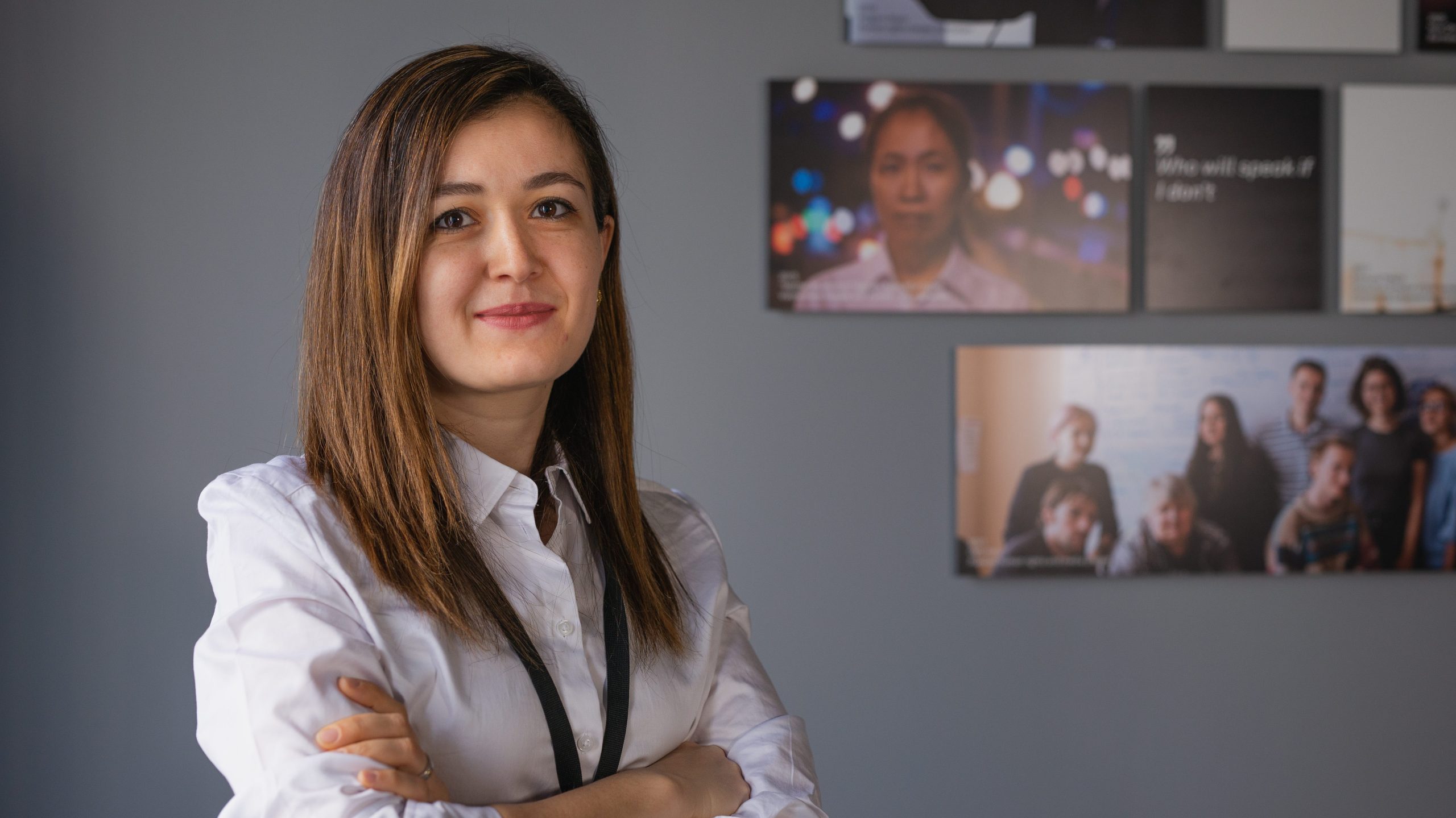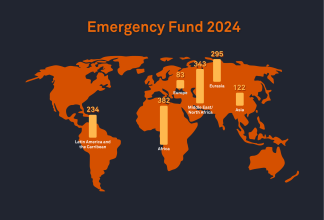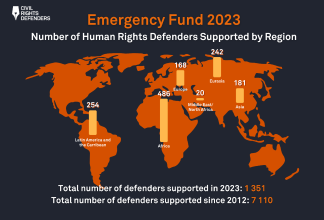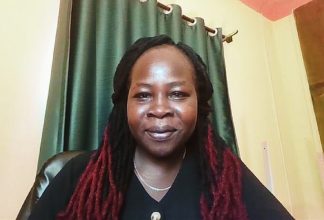Emergency Fund – 2022 in numbers
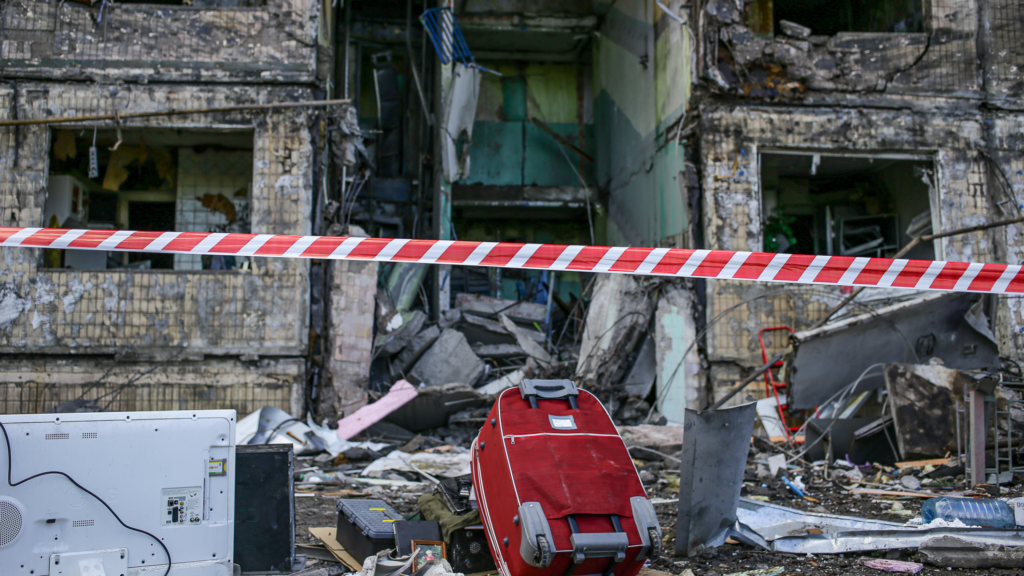
Defending human rights is a dangerous job in several parts of the world. Many of those who do, face risks and threats daily. When a threatening situation escalates, Civil Rights Defenders’ Emergency Fund provides rapid assistance to strengthen the defender’s security as quickly as possible.
The Emergency Fund can, for example, provide legal aid or temporarily relocate people who suffer persecution, as well as provide pre-emptive efforts such as security trainings or security measures. The goal is to make human rights defenders feel safe enough to carry out their work. In 2022, the Emergency Fund supported a total of 2267 human rights defenders in 34 countries.
Emergency support increased with 60 percent in 2022
Civil Rights Defenders’ emergency support has grown exponentially throughout the years. In 2022, we received and processed the largest amount of Emergency Fund applications since the inception of the fund in 2012. During 2022, the fund provided support to 2267 human rights defenders and members of their families in 34 countries in 5 different regions, through a total of 264 grants. This constitutes a 60 per cent increase of emergency support, compared to 2021. Since 2012, we have in total supported 5759 human rights defenders worldwide.

The Emergency Fund has seen and reacted to the continuous global backsliding of democracy and emerging conflicts in 2022. The war in Ukraine, the aftermath of the military coup in Burma, the backlash for human rights defenders in Uganda, the increase of conflict-related violence in Colombia, and the constant crackdowns on civil society through “foreign agents’ laws” in different countries such as Nicaragua and Venezuela, are only a few of the situations that have continued to deteriorate the security situation for human rights defenders during 2022.
“Many human rights defenders cannot keep on working for human rights and democracy without additional support. Thanks to our interventions, approximately 91 per cent of all grantees have been able to continue their work after receiving support”, says Zinaida Muradova, Head of Rapid Response at Civil Rights Defenders.
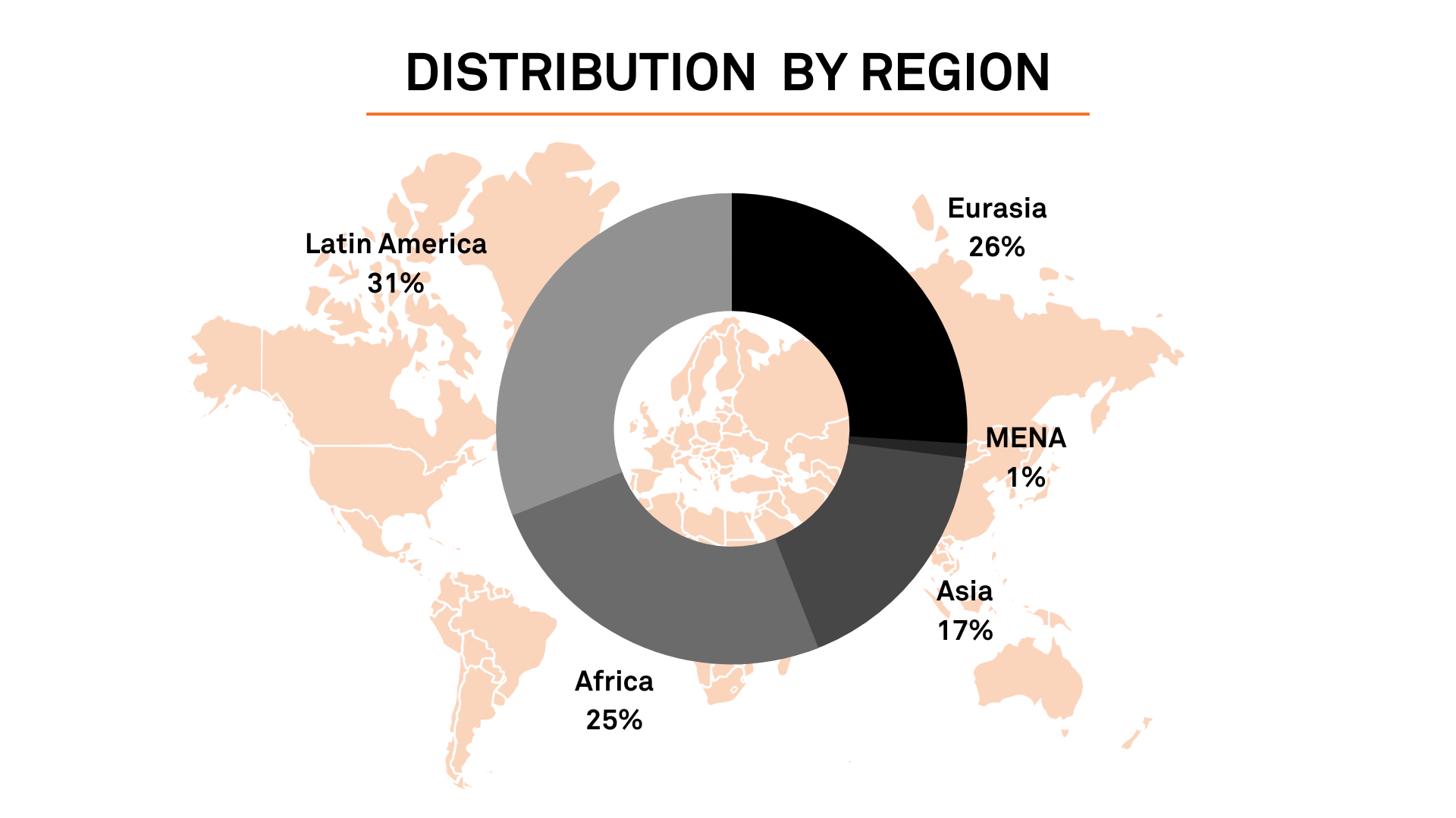
In 2022 we have seen a significant increase in emergency support provided to both Eurasia and Latin America. We have provided support to 600 human rights defenders within the Eurasia region, a number responding to the pressing needs in the region due to the ongoing war.
In Latin America, we saw an unprecedented increase in the number of beneficiaries, where a total of 701 defenders benefited from emergency support. This responded to the rising level of violence and persecution towards human rights defenders in countries such as Nicaragua and Colombia.
Defenders from Burma and Asia continued to constitute a large portion of the total beneficiaries. Additionally, the Emergency Fund continued to expand its reach in the Africa and MENA regions.

Surge in applications from journalists in Ukraine and human rights defenders in Colombia
In the past year, we received a large influx of applications from journalists, media outlets and human rights defenders working with freedom of expression in Burma and Ukraine. Particularly, the Emergency Fund extended support to a total of 450 human rights defenders in Ukraine. Many of these have been independent journalists covering the war from the frontlines, lawyers documenting war crimes, and LGBTI+ activists working in some of the most vulnerable areas of the country. Emergency support has, for example, been used for insurance, medical equipment, protective vests and helmets, mobile power plants and satellite internet, urgent evacuations, office relocations of staff and psychosocial support – all with a focus on making it easier for them to stay in Ukraine and continue their important work.
In Colombia, we have witnessed an intensification of violence in many parts of the country, especially in rural areas of the Pacific region and along the Colombian-Venezuelan border where armed groups compete for territorial control. Human rights defenders, particularly those working on the implementation of the peace agreement in rural areas and the protection of the land and environment, often become targets for armed groups. Many face violence and death threats, making Colombia one of the most dangerous places in the world for human rights defenders. During 2022, we provided support for temporary relocations and security improvements, among other types of support, to 222 human rights defenders, including journalists, indigenous- and afro-descendant leaders, as well as grassroots organisations.

An increasing need for temporary relocations and humanitarian support
Temporary relocations remained the most requested type of support. The primary goal of a temporary relocations is to provide human rights defenders with the possibility to relocate for a short period of time, within their country or abroad, while the threat level de-escalates enough for them to return and continue their human rights work. This year, however, we have seen that for the majority of relocated defenders, return is no longer possible as violence and threats remain and even continue to increase.
This is particularly the case for human rights defenders from Burma, Afghanistan and Nicaragua, who might face detentions, imprisonment and even torture upon return. Many defenders also face additional risks in the country of relocation, as many governments around the world continue to apply restrictive migration policies, making it hard to relocate or settle in a safe place. These situations increase the need for longer and additional support for defenders and their families.
This year we have also witnessed a surge in requests for humanitarian support from both human rights defenders and their families, mainly because of the war in Ukraine, and other conflict-related violence. Requests for psychosocial support and legal aid have also increased due to the heightened trend of arbitrary arrests, imprisonment, harassment, and persecution. Many support recipients have been provided with combined interventions, meaning a combination of several of the above-mentioned support types.
We continued to receive many requests for preventive security measures to improve the physical security of homes, offices, or increase digital safety.
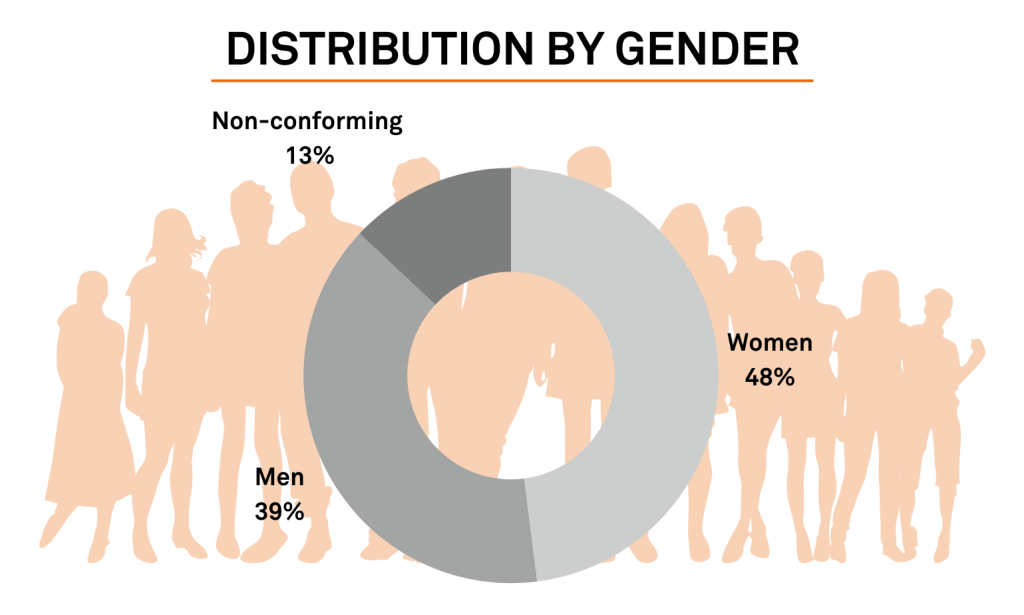
Women human rights defenders and LGBTI+ individuals face additional and specific risks when defending human rights. For this reason, the Emergency Fund has worked for several years to ensure a good gender balance and representation amongst the beneficiaries of support and make the funds accessible and inclusive for the most vulnerable groups. Compared to 2021 there was an increase in the number of supported women and gender-nonconforming individuals receiving support.
“Democracy and human rights cannot be achieved without human rights defenders. Through the Emergency Fund we ensure that they feel safe enough to continue the fight for human rights”, says Zinaida Muradova.
